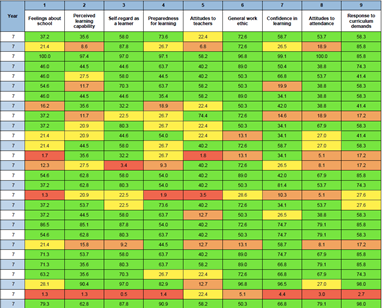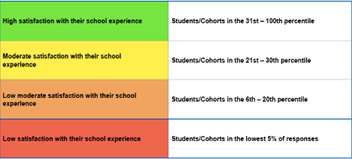As a newly appointed Assistant Principal with responsibility for Additional Needs, and indeed throughout my career as a Teacher, Progress Leader and Learning Support Coordinator, I have become increasingly aware of the challenges faced by schools to address the rise in mental health-related problems experienced by pupils of all ages, together with their perceptions and attitudes towards school in general.
There is a large body of evidence which indicates increasing stress levels and a growing number of referrals regarding mental health issues in young people nationally (Office for National Statistics, 2015). More worryingly, the Centre for Mental Health’s ‘Missed Opportunities’ report of 2016 maintains that, on average, it can take at least a decade between a young person first becoming unwell to seeking or securing support for a mental health condition.
Identifying warning signs
A government Green Paper presented to parliament in 2017, ‘Transforming Children and Young People’s Mental Health Provision’, argues that ”our mental health and wellbeing are vital to our ability to thrive and achieve” (p3). This statement is one with which no-one would argue; however, the problem of identifying warning signs of young people’s emotional pain or life experience difficulties remains.
As educational professionals, we see young people five days a week. Due to rigid external drivers, such as the weight of external accountability, we are often focused on those individuals in terms of them being pupils within the context of an educational environment. However, pupils do not exist in a vacuum; the educational context is only a single aspect of their lives and they are also subject to a multitude of influences and experiences, as we all are.
Thus, the challenge we as educators face is how to access a holistic view of each pupil in order to identify, and more importantly address, potential hidden barriers to learning. GL Assessment’s Pupil Attitudes to Self and School (PASS) survey provides a picture of the school from the student’s perspective and may challenge the assumptions held by the school’s teachers, senior leaders and other staff.
The PASS survey reports provide the following:
- A whole-school profile
- Analysis by specific groups
- A profile comparison against the national benchmark
- Individual pupil analysis
- Suggested interventions. *
This allows us to do the following:
- Establish pupils’ perceptions of our school, together with their learning experience
- Identify those pupils who require interventions, including those who are emotionally vulnerable and with potential mental health issues
- Tailor bespoke interventions and inform teaching and learning strategies accordingly in order to improve attainment, attendance and overall pupil wellbeing
- Implement a proactive approach in addressing challenging behaviour
- Facilitate a collaborative approach to multi-agency support/intervention.
For pupils to flourish at school, high quality pastoral care is essential. It nurtures academic progress and encourages pupils to achieve their potential. As such, established methods of identifying potential barriers to learning and progress early on in a pupil’s academic journey are key to successful outcomes.
The adoption of PASS as an integral part of our Academy’s pastoral system has facilitated identification of often ‘hidden’ barriers to individual pupil’s progress, not only academically but also in terms of their maturity, behaviour, attitude to learning (including engagement) and overall wellbeing.
Such ‘hidden’ barriers have ranged from a deficit in cultural capital and an associated ingrained belief that ‘I can’t do this’ to unidentified carers, where the pressures on home life negatively impacted on a pupil’s ability to engage in school life. In the former case, access to trips to enrich life experiences, peripatetic lessons and self-esteem intervention proved successful. In the later example, access to respite, support with homework and a behaviour management intervention significantly reduced the number of behaviour incidents associated with the pupil in question.
Clear, colour-coded reports facilitate efficient identification of both pupils that require immediate interventions and those that could potentially need them in the future. Importantly, the information provided allows interventions to be put in place as a preventative measure.
Individual Pupil Profile


A mixture of moderate learning satisfaction together one low moderate satisfaction indicates that early intervention is need in order to ascertain the cause of any potential barriers to learning.
The red boxes indicate this particular pupil is in the lowest 5% of responses and requires intervention.
PASS is clear in its intent, to identify ‘attitudinal or emotional issues’ prior to their ‘impact on school performance’, and facilitates implementation of interventions based on evidence, where the impact is easily measured.
St. Edwards Church of England Academy, Leek is one of our Centres of Assessment Excellence
*Our new Interventions are free to all PASS users and available now. Each of the 50+ interventions are linked to one of PASS’s nine factors, and they provide:
- A background to each factor
- What a low score might mean for your school, group or pupil
- What it might look like in the classroom
- Questions to ask
- What to do next to help address the issue
You can download a sample of one of the interventions here or access via the new button on your Testwise homepage.


